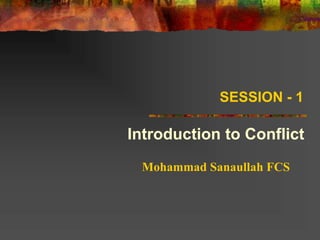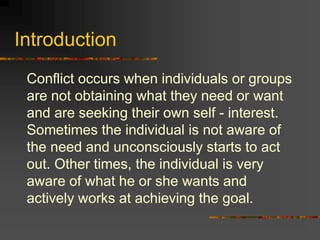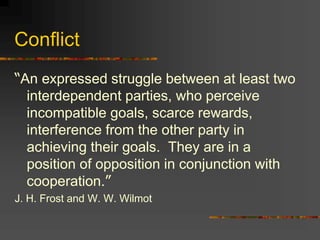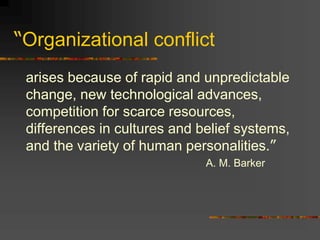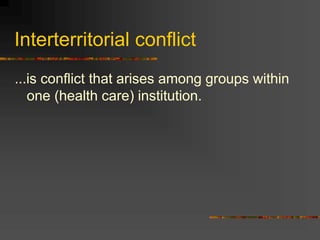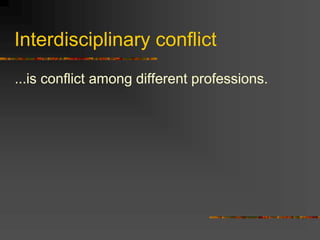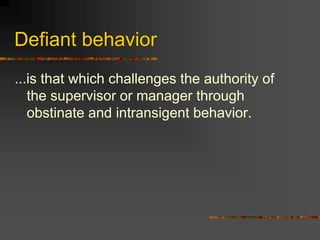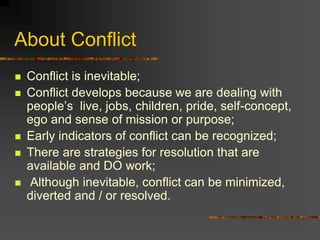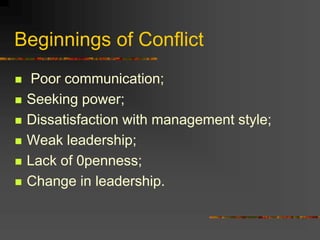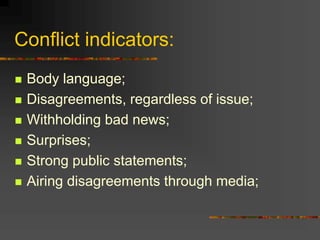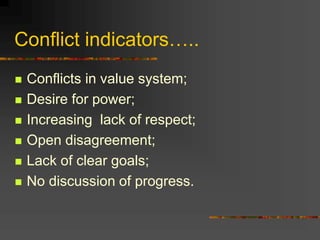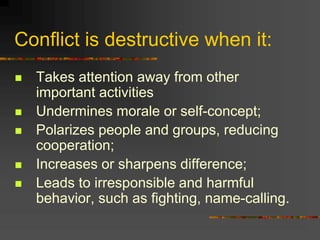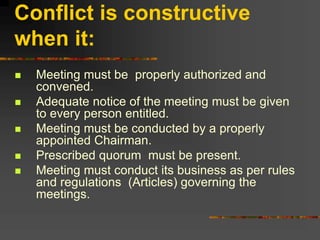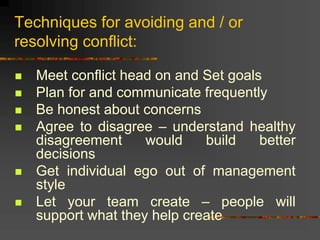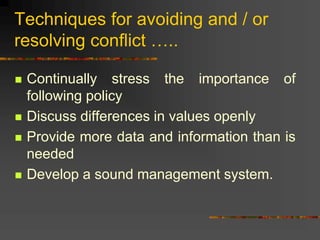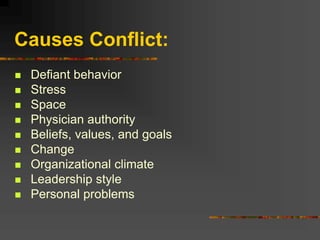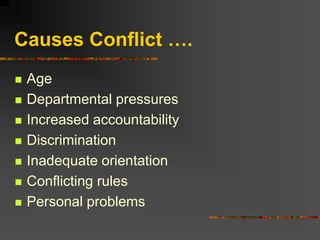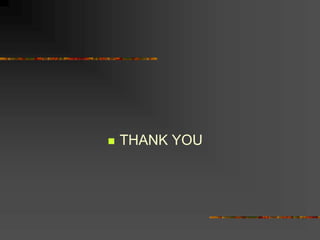Conflict arises when groups or individuals are unable to obtain their needs or wants and pursue self-interest. It can occur consciously or unconsciously. Conflict is defined as a struggle between two interdependent parties who see incompatible goals. Organizational conflict arises from changes, competition over scarce resources, and differing cultures. Conflict indicators include disagreements, poor communication, and a lack of respect between parties. Conflict can be constructive if it leads to better decisions or destructive if it undermines cooperation or productivity. The document provides techniques for avoiding or resolving conflict such as open communication, agreeing to disagree, and establishing clear goals and policies.
